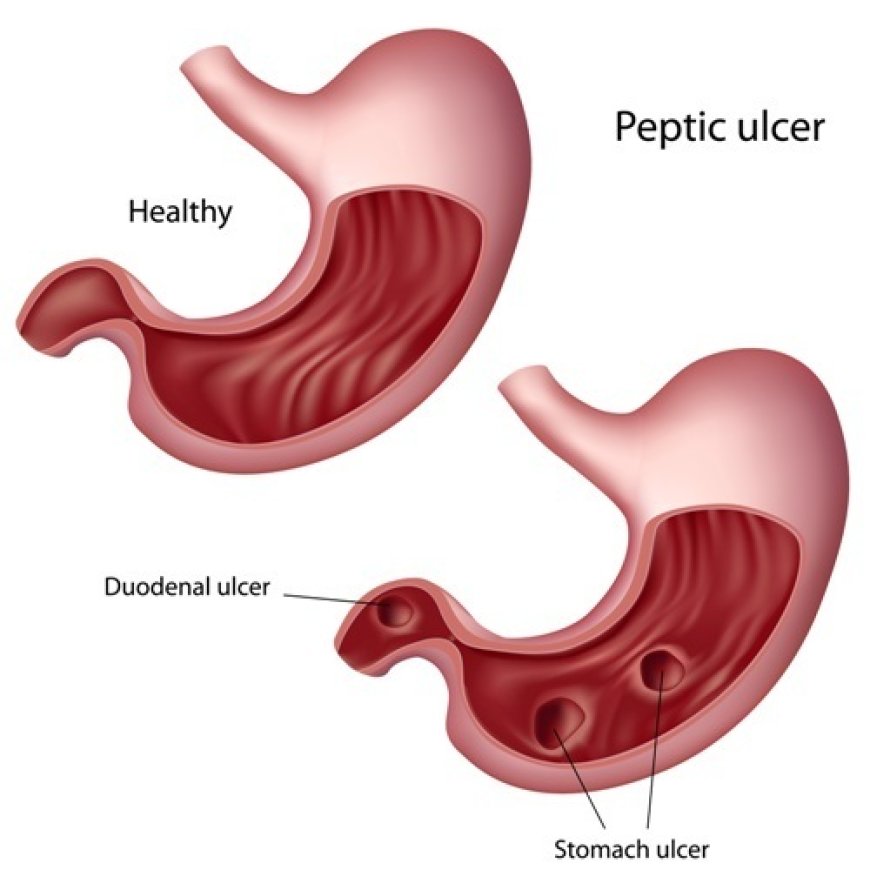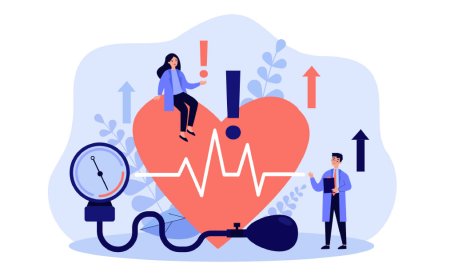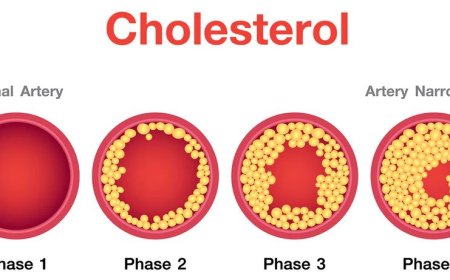Ulcer - Peptic

Introduction:
Imagine enjoying your favorite spicy street food, but suddenly, a sharp pain in your stomach ruins the fun. This pain could be a symptom of an ulcer. Ulcers are common in India and can affect people of all ages. In this article, we will explore what ulcer-peptic is, its signs and symptoms, various types, diagnostic tests, treatments, and prevention techniques.
What is Ulcer - Peptic?
Ulcer - Peptic, also known as peptic ulcer, is a painful sore that forms on the lining of the stomach, small intestine, or esophagus. The stomach and intestine have a strong acid called gastric acid to help digest food. But sometimes, this acid can erode the protective lining, leading to an ulcer.
Signs and Symptoms:
When someone has an ulcer, they may experience the following symptoms:
- Burning sensation or pain in the stomach (near the belly button).
- Feeling bloated or full even after eating small amounts.
- Nausea and vomiting.
- Loss of appetite and unintended weight loss.
- Dark or black stools due to bleeding in the digestive tract.
- Feeling tired and weak.
How is Ulcer - Peptic Classified?
Ulcers can be classified into two types based on their location:
- Gastric Ulcer: When the ulcer forms in the lining of the stomach.
- Duodenal Ulcer: When the ulcer develops in the upper part of the small intestine, called the duodenum.
Causes and Triggers:
The primary cause of ulcer-peptic is an imbalance between the stomach's protective lining and the stomach acid. Some common triggers that can worsen ulcers include:
- Spicy and oily foods.
- Smoking and consuming alcohol.
- Stress and anxiety.
- Certain pain relievers like aspirin and ibuprofen.
- Infection with a bacterium called Helicobacter pylori (H. pylori).
Risk Factors with Examples:
Certain factors can increase the risk of developing ulcers. Here are some examples:
- Family History: If someone in your family has had ulcers, you might be more likely to get them too.
- Unhealthy Eating: Regularly eating spicy, greasy, or acidic foods can irritate the stomach lining and raise the risk of ulcers.
- Frequent Use of Pain Relievers: Taking pain relievers like aspirin or nonsteroidal anti-inflammatory drugs (NSAIDs) can harm the stomach's protective lining.
- Stressful Lifestyle: High-stress levels can increase stomach acid production, potentially leading to ulcers.
- H. pylori Infection: If you come into contact with this bacterium, you may develop an ulcer.
Types of Ulcer - Peptic:
- Gastric Ulcer: These ulcers occur in the stomach lining and can be more painful after eating. The pain might get better with antacids.
- Duodenal Ulcer: These ulcers are more common than gastric ulcers and cause pain on an empty stomach, usually between meals or at night.
Diagnostic Tests and Treatments:
To diagnose ulcers, doctors may perform the following tests:
- Endoscopy: A thin, flexible tube with a camera is inserted through the mouth to view the stomach and intestines.
- Upper Gastrointestinal (GI) Series: A series of X-rays after drinking a chalky liquid to see the stomach and duodenum.
- Stool Test: To check for the presence of H. pylori bacteria.
Treatment Options:
- Lifestyle Changes: Avoiding spicy and oily foods, quitting smoking, and managing stress can help in the healing process.
- Medications: Doctors may prescribe antacids, antibiotics (if H. pylori is present), or acid-reducing medications to promote healing.
- Surgery: In severe cases, surgery may be required to repair the ulcer or remove the affected tissue.
Complications of Ulcer - Peptic:
If left untreated, ulcers can lead to serious complications such as:
- Bleeding: Ulcers can cause internal bleeding, leading to anemia and dark stools.
- Perforation: An ulcer can create a hole in the stomach or intestine, causing a life-threatening condition.
- Obstruction: Scarring from ulcers may block the passage of food through the digestive tract, causing pain and bloating.
Prevention Techniques:
You can reduce the risk of ulcers by:
- Eating a balanced diet with less spicy and oily foods.
- Avoiding smoking and excessive alcohol consumption.
- Managing stress through exercise, hobbies, and relaxation techniques.
Ulcer - Peptic can be a painful experience, but with proper care and early diagnosis, it can be treated effectively. By making healthy lifestyle choices and seeking medical attention when needed, you can protect your tummy from the trouble of ulcers. Remember, a happy tummy means a happy you!
What's Your Reaction?


























































